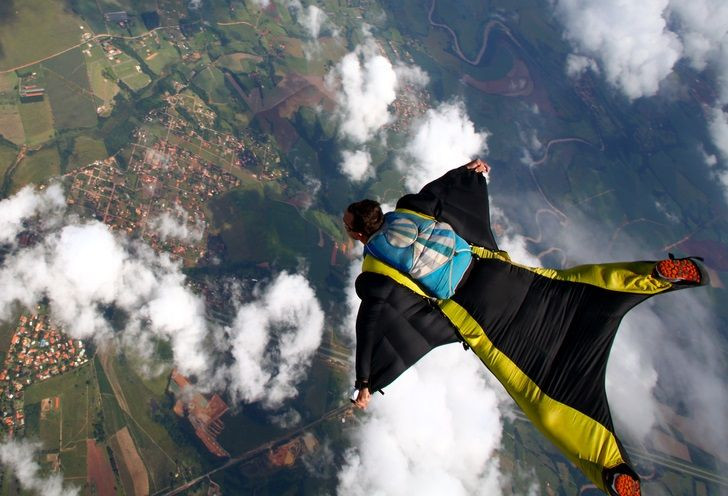Risky Business: Taking Risks Isn't Only Good For Your Well-Being, It's Also Good For Your Future

Whether you’re jumping out of a plane 12,000 feet in the air — with a parachute, obviously — or quitting the job you hate to travel the world, taking risks is a fact of life. And while it’s pretty dumb to cross the middle of a street as traffic zooms by, getting to the other side has taught you how to calculate a number of factors. After all, you didn’t die, right? Risk-taking may not get the best rap sometimes, but when it’s done correctly, with every consequence (or most, at least) accounted for, there are some great things that come out of it.
Like watching horror films, taking risks leaves us at the edge of our seats wondering what’s going to happen next. Even in a controlled environment like skydiving, we’ve stepped out of our comfort zone. Anxiety, dread, and fear build up within, but it’s all temporary. Just like the end of a rollercoaster ride, those feelings give way to a rush of exhilaration and arousal, as dopamine is released in the body. The neurotransmitter, which regulates reward and pleasure centers in the brain, brings with it feelings of happiness, satisfaction, and an all-around good feeling — it’s also released after a good meal, when your favorite sports team wins, and when taking cocaine.
Those who go to theme parks, go skydiving, or who take risks during a favorite activity are likely to go back over and over again. Like drug addicts, they can’t get enough of that rush. Yet, taking risks isn’t only for those who want to do such things. In fact, it could be just as much about rewards in the brain as it is about drive and motivation, according to a 2009 study.
“When you can’t breathe and you’re gasping for air, would you call that pleasurable?” said Nora D. Volkow, a dopamine researcher and director of the National Institute on Drug Abuse, at the Society for Neuroscience annual meeting in 2009, according to The New York Times. “Or, when you’re so hungry that you eat something disgusting, is that pleasurable?” In these situations, dopamine is on high, as the body goes through an “intense drive to get you out of a state of deprivation and keep you alive.”
In this way, taking risks is also about survival. So, when it comes to advancing in your career, relationships, or just about anywhere in life, your brain will focus on getting through. All you have to do is take that jump.
Once you’ve jumped, you’ll notice that things might get a bit harder. But trying times are not bad. Taking risks opens your mind up to learning new things. New challenges and opportunities will present themselves, and they will force you to find creative solutions. As this happens, there may be setbacks, but every one of them is a learning opportunity and only a stepping stone toward the end result. Although the process may necessitate a shift in your mindset, it’s still a positive one that gets you proactive. And isn’t it better to see what happens, rather than wondering “what if?”
In fact, risk-taking is natural, if you think back to those teenage years. Risk-taking is most rampant during teenage years, according to a 2011 study. Without taking risks, none of us were able to learn right from wrong — yes, some of us still don’t know — like stealing and unsafe sex, or how to deal with dangerous situations like running across a busy street. Yet, most of us came out all right. Essentially, taking risks only requires that we understand what we’re getting ourselves into as much as possible and that we follow through until we reach our goals. If that’s doable, then it’s probably worth taking.



























